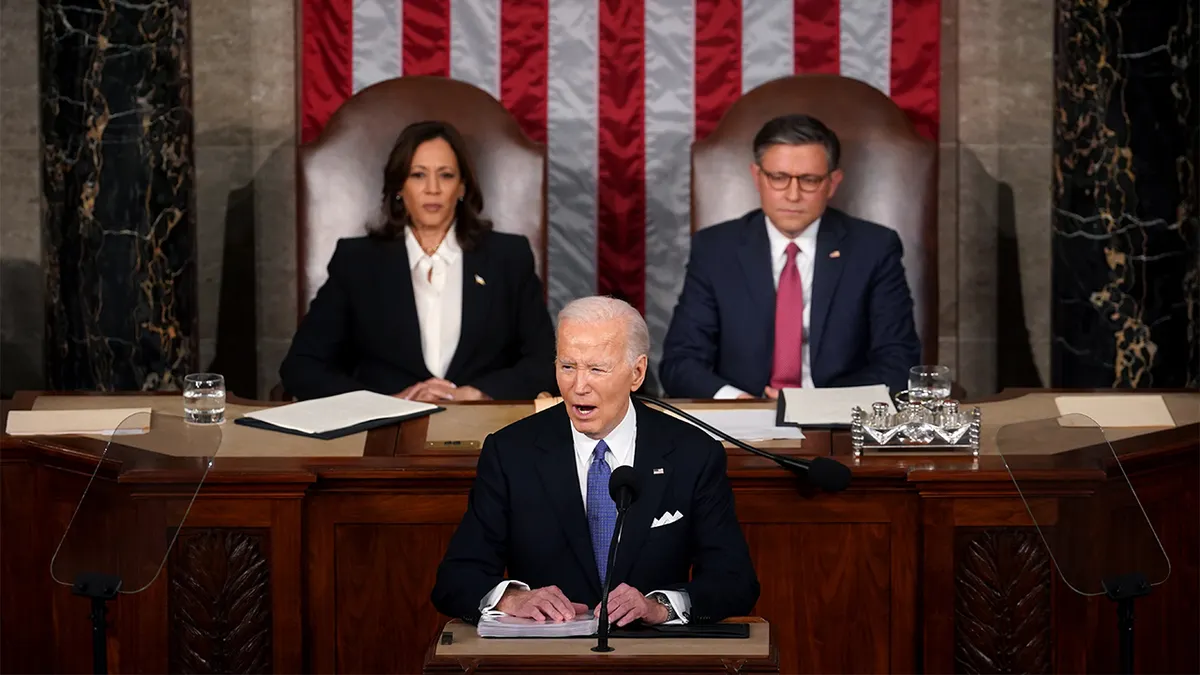Amidst a swirling mix of perceptions, Americans are left to ponder which version of President Joe Biden will dominate the public stage in the coming months.
Following a dynamic State of the Union address where he engaged with Republican adversaries, Biden now embarks on a month-long tour of crucial swing states to rally Democrats and inspire civic engagement, starting with campaign rallies in Philadelphia and Atlanta.

Meanwhile, Robert Hur, a special counsel, prepares to testify on Capitol Hill about Biden’s alleged memory lapses during an investigation into mishandled classified material.
This split-screen portrayal of Biden raises questions. Is the assertive orator seen in his State of the Union speech genuine? Or does it conflict with the narrative of a forgetful elder, as suggested by Hur’s findings?
Vice President Kamala Harris, when asked about potential debates with former President Donald Trump, sidestepped the issue. Instead, she emphasized Biden’s policy proposals outlined in his speech, including democracy protection and economic reform.

Notably, Biden’s speech included an unexpected use of the term “illegal” to describe a suspect in a high-profile murder case, a departure from his administration’s stance on terminology in immigration enforcement.
A revealing hot-mic moment captured Biden’s offhand remark about a forthcoming meeting with Israeli Prime Minister Benjamin Netanyahu, colloquially referred to as a “come to Jesus meeting.” This candid exchange contrasts with Biden’s public diplomacy.
Biden’s challenge now lies in maintaining momentum from his speech, which risks fading from public memory amidst competing narratives and perceptions





